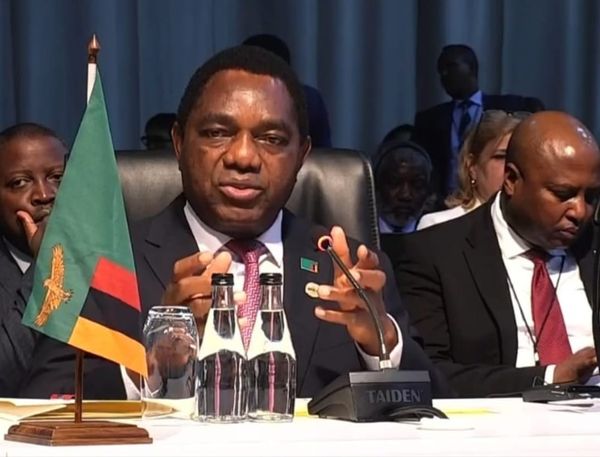Africa is home to several spectacular deserts spread across the length and breadth of the continent, with some of the most extreme landscapes and conditions in the world, but they are beautiful with their allure.
From dunes to volcanic mountains, the deserts present a wide range of amazing features and geological wonders.
The most popular deserts on the continent include the Sahara Desert, Kalahari Desert, Karoo Desert, Danakil Desert, Chalbi Desert, Namib Desert, Guban Desert, Nyiri Desert, and Grand Bara Desert.
Having been known to be deserted, there is a general belief that little or nothing other than dunes can come from them due to their dryness. However, beyond the striking beauties of the African deserts, most of them are blessed with rich natural resources, which present the immediate environment and the continent at large with numerous opportunities.
Take the Sahara desert, which is spread across many countries in northern Africa. It is the largest in Africa and has come to be known as the largest hot desert in the world, as well as the world’s third-largest.
The desert is blessed with huge natural resources hidden beneath it. It has deposits of uranium, iron ore, phosphorus, and manganese, as well as a reservoir of oil and gas that countries around it greatly benefit from.
Other resources like limestone and gypsum can also be found in the Sahara desert, while its dust contains some iron-containing minerals such as clays, feldspars, and iron oxides.
For the semi-arid Kalahari desert, which stands as the eighth largest in the world and is spread on the plain interior part of Southern Africa, there are enormous deposits of coal, copper, nickel, and uranium deposits in the region, just as Pomfret, on the edge of the desert, has asbestos in the subsoil and a shuttered asbestos mine.
The Kalahari Desert also houses one of the biggest diamond mines in the world, discovered over 30 years ago.
As for the Namib desert, which is a coastal desert in southern Africa and ranks as the world’s oldest desert, it is well known for its diamond deposits, which formed through a natural process millions of years ago, while others equally have one mineral deposit or the other.
The value of the resources in African deserts and their uses
With the availability of such abundant resources spread across various deserts in Africa, the deserts present many economic opportunities that can meet the demands of local communities, host countries, and the continent as a whole.
From resources like diamonds, iron ore, and coal, large-scale mining has evolved in some African countries like Algeria and Libya, which tap the Sahara desert, and in South Africa and Botswana, which tap the Kalahari desert, such that Botswana’s mining industry thrives as one of the best in the world.
In terms of oil and gas deposits, exploration has become strategic for countries around the deserts, which have taken huge steps towards maximising the resources to their advantage. For instance, 60% of Algeria’s income, closely knitted with the Sahara desert, comes from the oil and gas industry.
Stones and sand from the deserts across Africa also come in as sources of precious metal and gem mining.
Due to the heat associated with some of the deserts, like the Sahara, opportunities for generating solar energy are also presented. Little wonder then that Forbes was once quoted as saying that the Great Saharan Desert is prime for solar power with more than twelve hours of sunshine per day, which means 1.2% of the Sahara desert is sufficient to cover all of the energy needs of the world in solar energy”.
Exploring this resource, Morocco is growing to be a solar superpower not only in Africa but in the world as it takes advantage of the abundance of heat to embark on building one of the world’s biggest solar power plants.
The future of resources in African deserts
Presently, most of the resources in the deserts have been exploited, but there is potential for more than they currently generate if the right things are done.
In terms of power generation, the world is going green, thereby embracing renewable energy sources, and with Africa having the combination of one of the hottest deserts as well as the oldest deserts in the world, among others, the deserts promise a good source of energy in terms of solar and wind for Africa and even beyond the shores of the continent.
This claim was buttressed by the International Renewable Energy Agency, which estimated that renewable energy capacity in Africa could reach 310 GW by 2030, thereby placing the continent at the forefront of renewable energy generation globally.
With renewables, the continent can increase its GDP, create a basis for new sources of trade revenues, and create a niche for itself.
But this requires huge investment for technological adaptation and infrastructure construction, such as large solar plants, as well as adequate storage systems to ensure stability.
While electricity would be gotten from cleaner sources without polluting the environment, there are other opportunities tied to the value chain that would have positive ripple effects on the economy of the continent, such as increased power supply, job creation, a good health system, a viable business environment, and improved educational services, among others.
For the mineral resources, no doubt the African deserts have them in enormous amounts, but going into the future, it is imperative to improve knowledge on the potential and availability of the resources to strengthen Africa’s standpoint, especially as regards contractual agreements with foreign partners.
Over time, African states have entered into negotiations with international mining companies on unequal terms, and to put an end to this in the interest of the continent,
Strategic efforts need to be deployed to build a critical mass of capable African negotiators across the continent.
Also, capacity needs to be improved in areas of monitoring, regulating, and auditing, while research and development platforms for innovations should be established.
While many might see this as a means of selling out the continent’s potential, it is pertinent to state that Africa’s resources cannot be limited to the continent alone because, as much as the continent can lay claim to them, it needs the expertise, investment, and partnerships of other continents to make judicious use of such resources.
Based on the above, it is believed that there will continue to be more mining activities due to the need to develop available resources. In doing this, the African continent needs to adopt evolving technologies for seamless exploration and to reduce the adverse effects on the continent.
Doing this will entail the usage of technologies like artificial intelligence, machine learning, data, and tech simulation systems, just to mention a few, that would enhance the efficient extraction of resources with minimal effects on human exposure to risks.
Knowing that Africa is home to a vast number of natural resources, the deserts not excluded, leaders on the continent need not be complacent but rather keep striving to make the best out of the resources while also focusing on other sectors of the economy for even more sustainable development.


